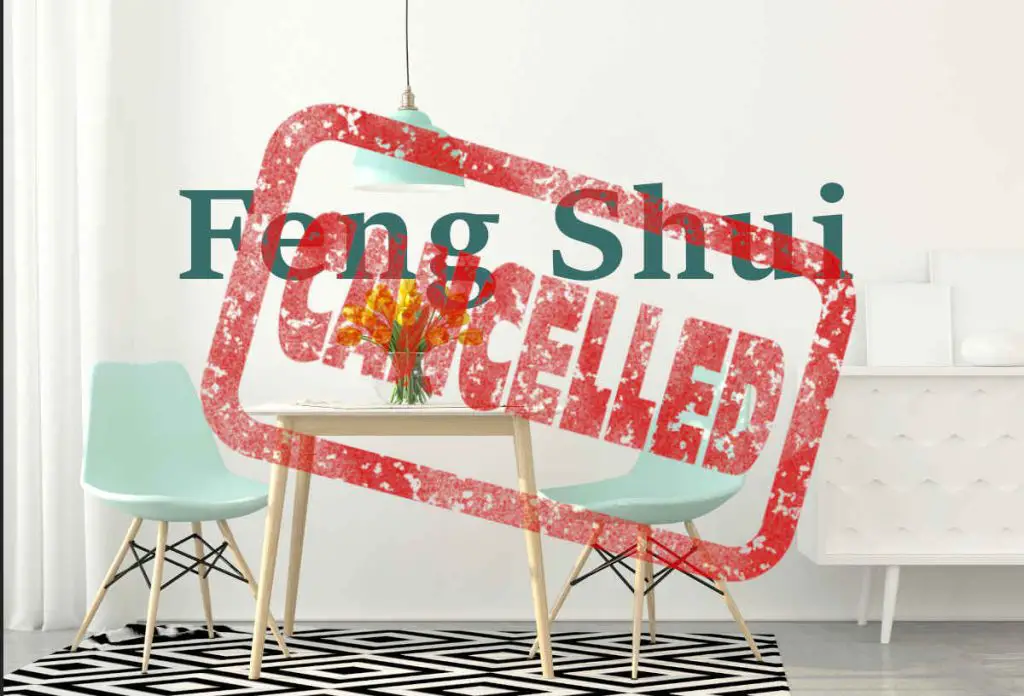Feeling frustrated with your Feng Shui? You’re not alone! Many people struggle to achieve the harmonious energy flow they desire in their homes, despite their best efforts. But don’t worry – the reasons behind your Feng Shui woes are often quite common, and with the right guidance, you can transform your space for real, lasting results.
In this article, we’ll dive into the most frequent culprits behind stagnant energy flow and uncover practical solutions to get your home’s chi (energy) moving in the right direction. From misunderstandings about Feng Shui principles to the impact of clutter and the five elements, we’ll explore a range of factors that could be hindering your Feng Shui success.
By the end of this journey, you’ll have a deeper understanding of how to create an environment that truly supports your goals and well-being. So, let’s get started on unlocking the full potential of Feng Shui in your home!
Demystifying the Myth: Feng Shui as a Tool, Not a Guarantee
Sometimes, Feng Shui gets misconstrued as a magic bullet – a quick fix adorned with lucky cats and crystal balls. But here’s the truth: Feng Shui is a powerful tool, not a guarantee.
At its core, Feng Shui is about creating harmony and flow (chi) in your environment. It’s about setting intentions and thoughtfully arranging your space to support your well-being. It’s a practice that empowers you to take an active role in shaping the energy of your home.
Think of it like this: a well-maintained garden flourishes, while a neglected one struggles. Feng Shui principles help you cultivate a thriving environment, but it requires ongoing attention and adjustments to truly see it blossom.
Common Culprits: Why Your Feng Shui Might Be Missing the Mark
Ever implement Feng Shui with meticulous care, yet your home’s energy feels stagnant? It’s common! Let’s explore some common culprits that might be hindering your Feng Shui efforts:
- The “One-Size-Fits-All” Approach: Feng Shui isn’t a rigid formula. What works wonders for your friend’s wealth area might not resonate with your needs. The key is to tailor Feng Shui principles to your unique life aspirations and the specific energy you want to cultivate in each area of your home.
- Chasing Cures, Not Addressing Root Causes: Feng Shui cures like wind chimes and lucky cats are wonderful enhancers, but they shouldn’t overshadow the importance of addressing underlying issues. For instance, a cluttered career area with a wealth cure on top might not yield the desired results. Decluttering the space first will allow the chi to flow more freely, making the wealth cure even more effective.
- Inconsistent Implementation: Feng Shui isn’t a one-time fix. Creating a lasting shift in your home’s energy requires ongoing attention. Regularly declutter, adjust furniture placement as needed, and revisit your intentions to ensure your space continues to support your goals.
“One of the biggest mistakes people make with Feng Shui is applying a one-size-fits-all approach. Each individual and space is unique, requiring tailored solutions.” – Feng Shui Consultant, Sarah Johnson
Incorrect Application of Feng Shui Principles
Even with the best intentions, sometimes we can miss the mark when applying Feng Shui principles. Here are some common mistakes to avoid:
Misplacement of Furniture
Furniture placement is a cornerstone of effective Feng Shui. When furniture is incorrectly positioned, it can block the flow of Chi and create discomfort. For example, placing a sofa with its back to the entrance can disrupt the natural flow of energy and make the space feel unwelcoming.
Instead, aim for arrangements that promote openness and visibility. Ensure that major pieces like beds and desks have strong, supportive positions with clear views of the door, fostering a sense of security and stability.
Ignoring the Bagua Map
The Bagua map is an essential tool in Feng Shui, used to identify the different areas of your home that correspond to various aspects of your life, such as wealth, health, and relationships. Ignoring the Bagua map can lead to imbalances and missed opportunities for enhancing specific life areas.
To use it effectively, overlay the Bagua map onto your floor plan and assess how each section aligns with your home’s layout. This will guide you in making adjustments that promote harmony and well-being in all facets of your life.
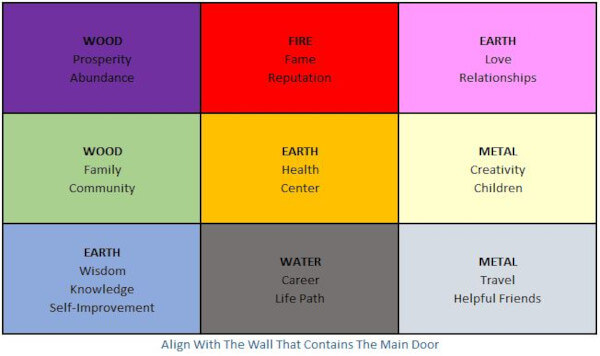
Misuse of Colors
Colors play a significant role in Feng Shui, influencing mood and energy. However, using them incorrectly can have adverse effects. For instance, too much red in a bedroom can create restlessness and agitation, whereas blue in a dining area might suppress appetite and social interaction.
It’s crucial to understand the properties of each color and use them strategically. Balance bold colors with neutral tones and ensure that the colors in each room support the intended activities and energy. For example, use calming colors like green and blue in relaxation spaces and energizing colors like red and yellow in active areas.
🍀 Our “Feng Shui Master” app is your trusted companion, offering a useful guide to implementing Feng Shui principles. Try it now!
Neglecting the Flow of Chi
Feng Shui revolves around the concept of chi, the vital energy force that permeates everything. It’s essential to understand chi and how it affects your space to optimize your Feng Shui efforts.
Imagine chi like a gentle breeze flowing through your home. Ideally, it should move smoothly and evenly, nourishing each area. Stagnant or erratic chi flow can lead to feelings of discomfort and hinder the positive energy you’re trying to cultivate.
The flow of chi is influenced by various factors, including the layout of your home, furniture placement, and even the presence of clutter. Sharp corners, cluttered walkways, and furniture arrangements that block doorways can all impede the smooth flow of chi.
Signs of Blocked Chi
Common signs include a feeling of discomfort or unease in certain areas, difficulty in achieving personal goals, and persistent problems in specific life areas, such as health or career.
Physical indicators might be excessive dust accumulation, poor ventilation, or items constantly breaking or malfunctioning. If you notice plants wilting or pets avoiding certain areas, these could also be signs that Chi is not flowing properly. By recognizing these symptoms, you can take steps to clear blockages and restore a harmonious flow of energy.
Related Reading: Common Things you Should NOT Keep at Home According to Feng Shui – Opens in new tab
Clutter and Its Impact
Clutter is one of the biggest enemies of good Feng Shui. It disrupts the natural flow of Chi, causing stagnation and negative energy build-up. Clutter can block pathways, making it difficult for energy to circulate freely, which can lead to feelings of stress, confusion, and even physical ailments.
Beyond physical clutter, mental clutter can also disrupt Feng Shui by creating a sense of chaos and preventing clarity. By clearing clutter, you open up space for positive energy to move through your home, promoting balance and harmony.

Decluttering Tips and Tricks
Decluttering can seem daunting, but with a few strategic tips, it becomes manageable and even therapeutic:
- Start Small: Begin with a single drawer or a small area to avoid feeling overwhelmed.
- Let go of broken items: Items that cannot be repaired or reused can disrupt the energy of a space and should be removed
- Use the Three-Box Method: Label three boxes as “Keep,” “Donate,” and “Trash.” Sort items accordingly to make decisions easier.
- Set a Timer: Dedicate a specific amount of time each day to decluttering, such as 15-30 minutes, to build momentum without burnout.
- Follow the One-In, One-Out Rule: For every new item brought into your home, remove one old item. This prevents new clutter from accumulating.
- Prioritize Visibility: Focus on decluttering visible areas first, like countertops and living spaces, to see immediate results and feel motivated.
- Create a maintenance routine: Set aside time each week to maintain your space and prevent clutter from building up again.
- Organizational Systems: Invest in storage solutions that work for your space, like shelves, bins, and drawer organizers. Labeling helps maintain order.
- Mindful Purchases: Be intentional with new acquisitions. Ask yourself if the item is necessary and if it truly brings value to your life.
Creating a Clutter-Free Environment
Creating a clutter-free environment is not just about physical tidiness; it’s also about creating a space that supports mental and emotional well-being. By decluttering and organizing your space, you can:
- Reduce stress and anxiety: Cluttered environments can increase stress levels and make it difficult to relax
- Improve focus and productivity: A clutter-free environment can help you stay focused and productive
- Enhance creativity: A tidy space can inspire creativity and innovation4
- Improve mental clarity: A clutter-free environment can lead to improved mental clarity and a sense of calm
“Clutter not only occupies physical space but also creates mental and emotional congestion, blocking the flow of positive energy.” – Feng Shui Expert, David Kennedy
Wrong Use of Mirrors
Mirrors are powerful tools in Feng Shui for manipulating energy and creating a sense of spaciousness and abundance. They can reflect and amplify both natural and artificial light, making a space feel brighter and more open. Additionally, mirrors can double the presence of desirable elements, such as beautiful views or uplifting artwork, while deflecting negative energy.
However, using them incorrectly can have unintended consequences.
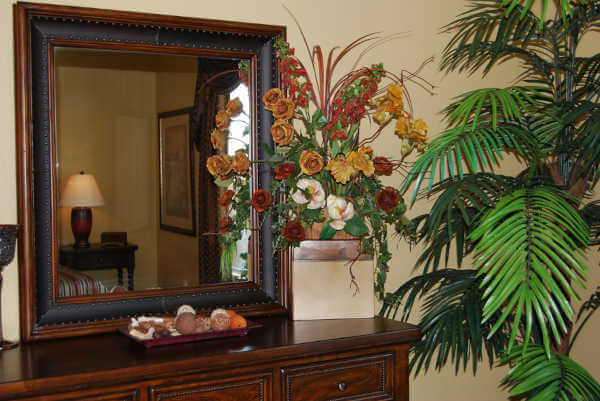
Common Mirror Placement Mistakes
Despite their benefits, mirrors can have negative effects when placed incorrectly. Common mistakes include:
- Facing the Bed: Placing a mirror directly across from the bed can create restless energy and disturb sleep. It’s advisable to avoid mirrors in the bedroom altogether or position them where they don’t reflect the bed.
- Reflecting Negative Energy: Mirrors should never reflect clutter, sharp objects, or dark corners, as they can amplify negative energy and disrupt harmony. Be mindful of what your mirrors reflect and adjust their placement accordingly.
- Blocking Chi Flow: Placing mirrors in pathways or near doors can obstruct the natural flow of Chi, leading to stagnation and imbalance. Ensure that mirrors are positioned to encourage Chi to circulate freely throughout your home.
Correct Mirror Placement for Positive Energy
To harness the positive energy of mirrors, follow these guidelines for placement:
- Amplifying Light: Position mirrors to reflect natural light from windows or doorways into darker areas of your home, creating a brighter and more uplifting atmosphere.
- Expanding Space: Place mirrors strategically to visually expand small or cramped rooms, making them feel more spacious and inviting. Reflecting a beautiful view or artwork can enhance the sense of depth and dimension.
- Doubling Prosperity: Use mirrors to multiply symbols of wealth and abundance, such as money plants or prosperous symbols. Reflecting these elements can enhance their energy and attract prosperity into your life.
Related reading: Feng Shui Tips for Good Luck: Simple Practices for Big Results – Opens in new tab
Improper Use of Feng Shui Cures
Feng Shui cures are objects or placements used to enhance the flow of positive energy (chi) and mitigate negative influences in a space. They are an integral part of Feng Shui practice and can be used to address specific issues or enhance overall well-being.
However, it is crucial to understand that cures are not a one-size-fits-all solution and should be used in conjunction with other Feng Shui principles.
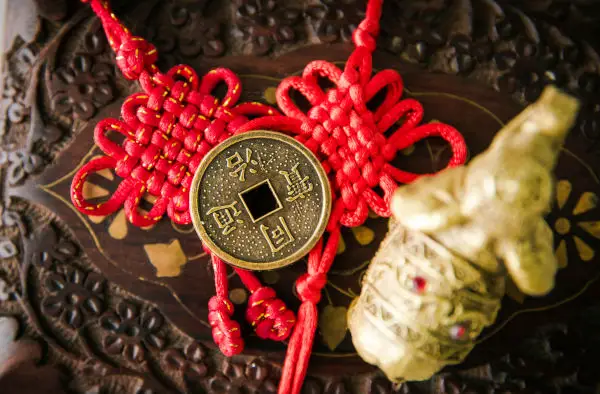
Common Misuse of Cures
Despite their potential benefits, Feng Shui cures are often misused or misunderstood, leading to ineffective results or unintended consequences. Some common mistakes include:
- Overuse: Using too many cures or remedies in an attempt to address multiple issues simultaneously can create energetic clutter and confusion. It’s essential to focus on a few key areas and apply cures with intention and purpose.
- Generic Applications: Applying generic cures without considering your unique circumstances and needs can result in ineffective or even detrimental effects. What works for one person or home may not necessarily work for another.
- Ignoring Intention: Simply placing a Feng Shui cure without clear intention or belief in its effectiveness may render it powerless. It’s essential to approach cures with positive energy and intention for them to work optimally.
- Relying Solely on Cures: Cures are like icing on the cake. They shouldn’t replace the foundational practices of decluttering, addressing root causes of energy blockages, and proper furniture placement.
- Misplaced Cures: Placing a wealth cure in a cluttered career area or a water feature in the wrong Bagua zone can have minimal impact, or even create energetic imbalances.
- Inconsistent Use: Cures need to be used intentionally and maintained with care. Dusty wind chimes or a stagnant water feature can become energy drains rather than enhancers.
How to Properly Implement Feng Shui Cures
To ensure the effectiveness of Feng Shui cures, follow these guidelines for proper implementation:
- Identify Specific Goals: Clearly define the areas of your life or home that you wish to improve or enhance. This will guide you in selecting appropriate cures that align with your intentions.
- Quality Matters: Choose well-maintained cures that resonate with you aesthetically. A broken or chipped cure can have the opposite effect.
- Apply with Intention: Before placing a cure, take a moment to set a clear intention for its purpose and visualize the desired outcome. Infuse the cure with positive energy and belief in its ability to manifest positive changes.
- Regular Cleansing: Just like your home, cleanse your cures regularly to remove any stagnant energy.
Improper Use of Feng Shui Cures
| Mistake | Explanation | Impact |
| Relying Solely on Cures | Treating Feng Shui cures as a magic solution without addressing underlying issues like clutter or improper furniture placement. | Limited effectiveness. Cures amplify existing energy, so a stagnant space won’t be revitalized by a cure alone. |
| Misplaced Cures | Placing cures in zones that don’t correspond with their intended purpose (e.g., a wealth cure in a cluttered career zone). | Minimal impact or even energetic imbalances. Cures placed in the wrong zones might not activate the desired energy or could create conflicting energies. |
| Inconsistent Use | Using cures sporadically or neglecting to maintain them (e.g., dusty wind chimes, stagnant water feature). | Cures can become energy drains instead of enhancers if not used consistently and cared for properly. |
| Generic Applications | Using generic cures without taking into account your particular circumstances | Can lead to ineffective or even hazardous results. |
| Overuse | Attempting to address several issues at once by using an excessive number of cures or remedies | Cause energetic clutter and confusion. |
| Not Setting Clear Intentions | Using a cure without a specific goal in mind. | Reduced effectiveness. Cures work best when imbued with your clear intentions for the energy you wish to cultivate. |
🍀 Our “Feng Shui Master” app is your trusted companion, offering a useful guide to implementing Feng Shui principles. Try it now!
Not Considering the Five Elements
Feng Shui recognizes the interconnectedness of everything in the universe, represented by the Five Elements: Wood, Fire, Earth, Metal, and Water. Each element possesses unique characteristics and influences specific aspects of your life. By understanding and balancing these elements within your home, you can create a harmonious and supportive environment.
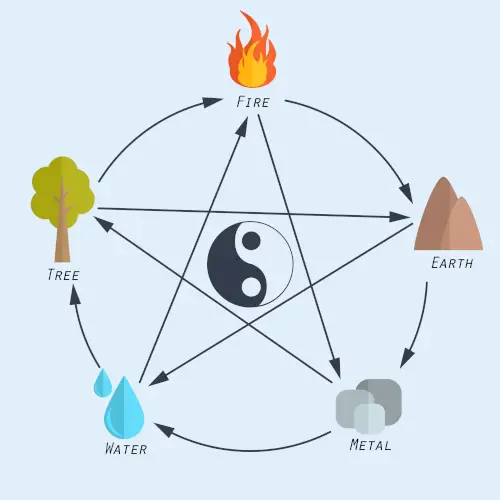
The Five Elements Explained:
- Wood (Growth, New Beginnings): Associated with vitality, creativity, and growth. Represented by plants, green hues, and organic textures.
- Fire (Passion, Transformation): Linked to passion, ambition, and transformation. Reflected by reds, oranges, and triangular shapes.
- Earth (Stability, Grounding): Represents stability, security, and grounding energy. Expressed by earthy tones, square shapes, and natural materials like clay or stone.
- Metal (Focus, Discipline): Symbolizes discipline, focus, and accomplishment. Metallic colors, round shapes, and metallic objects embody this element.
- Water (Flow, Intuition): Represents flow, intuition, and adaptability. Watery elements like fountains, wavy patterns, and cool blues and blacks embody this element.
Balancing the Elements in Your Home
Each area of your home aligns with a specific element according to the Bagua Map. By incorporating materials, colors, and shapes associated with the corresponding element, you can create a sense of balance and harmony.
For example, your living room, which represents the Fame and Recognition zone, might benefit from a touch of Fire energy through vibrant artwork or strategically placed candles to ignite your creativity and social connection.
Elemental Imbalances and Solutions
Identifying and addressing elemental imbalances in your home is essential for optimizing Feng Shui and promoting well-being:
- Wood Element Imbalance: Excessive Wood energy can lead to overgrowth, rigidity, or scattered energy. Balance it with Metal elements to control and refine its energy.
- Fire Element Imbalance: Too much Fire energy can cause agitation, impulsiveness, or burnout. Balance it with Water elements to cool and regulate its intensity.
- Earth Element Imbalance: Imbalanced Earth energy may manifest as stagnation, stubbornness, or excessive worry. Balance it with Wood elements to promote growth and renewal.
- Metal Element Imbalance: Imbalanced Metal energy can result in rigidity, isolation, or excessive criticism. Balance it with Fire elements to soften and invigorate its energy.
- Water Element Imbalance: Imbalanced Water energy may lead to emotional instability, insecurity, or lack of direction. Balance it with Earth elements to provide grounding and stability.
Five Elements Correspondences
| Element | Qualities | Life Areas Influenced | Materials | Colors | Shapes | Seasons |
| Wood | Growth, vitality, flexibility | Family, Health, Vitality | Wood (furniture, plants), Bamboo | Green | Tall, vertical | Spring |
| Fire | Passion, transformation | Fame, Recognition, Inspiration | Fire (candles), Textiles (red) | Red, orange, yellow | Triangular | Summer |
| Earth | Stability, nourishment | Wealth, Relationships, Balance | Stone, Clay, Crystals | Brown, earth tones | Square | Late summer |
| Metal | Clarity, strength | Career, Productivity, Helpfulness | Metal (objects, sculptures) | White, gray, metallic tones | Round, dome | Autumn |
| Water | Flow, adaptability | Knowledge, Wisdom, Peace | Water features, Glass | Blue, black | Wavy, irregular | Winter |
Want to learn more about Feng Shui? Take a look at these Courses and Books – Aff.link
Neglecting External Factors
While internal factors within your home are crucial for Feng Shui, external factors also play a significant role in shaping the energy of your living space. Your surroundings, including the natural environment, neighboring buildings, and geographic features, can have a profound impact on the energy flow and atmosphere of your home.

External Factors That Affect Feng Shui
Several external factors can influence Feng Shui:
- Natural Landscape: The presence of mountains, bodies of water, and open spaces can enhance or detract from the energy of your environment. Mountains provide protection and stability, while water symbolizes abundance and flow. Open spaces allow Chi to circulate freely, whereas blocked or cluttered areas can disrupt energy flow.
- Neighboring Buildings: The architecture and orientation of neighboring buildings can affect the flow of Chi to your home. Consider the position of neighboring structures in relation to your own, as well as their architectural features and landscaping, to determine their impact on your Feng Shui.
- Roads and Pathways: Roads, pathways, and other thoroughfares near your home can carry energy, both positive and negative. Pay attention to the direction and flow of traffic, as well as any obstructions or blockages that may impede the flow of Chi.
- Environmental Pollution: Pollution, noise, and other environmental factors can create energetic disturbances that affect the Feng Shui of your home. Take steps to mitigate these influences, such as using plants to purify the air, soundproofing windows, or creating barriers to block out unwanted sights and sounds.
Related reading: 17 External Features of a House that are Bad Feng Shui and How to Fix It – Opens in new tab
Adjusting External Factors for Better Feng Shui
While you may not have control over all external factors, there are steps you can take to optimize your Feng Shui:
- Enhance Natural Features: Work with the natural landscape surrounding your home by incorporating elements like plants, water features, and natural materials to enhance positive energy flow and create a harmonious environment.
- Create Boundaries: Use fences, hedges, or landscaping to create boundaries and define your space, protecting it from negative influences and promoting a sense of security and privacy.
- Address Obstructions: Identify and address any obstructions or blockages that impede the flow of Chi to your home. This may involve adjusting the layout of your outdoor space, strategically placing mirrors or wind chimes, or using Feng Shui remedies to counteract negative energy.
- Harmonize with the Environment: Consider the overall energy of your surroundings and strive to harmonize with it. Pay attention to the natural rhythms and cycles of the seasons, incorporate elements that reflect the local climate and culture, and cultivate a sense of connection and respect for the land and community.
- Embrace Indoor Plants: Indoor plants act as natural air purifiers and can help mitigate the effects of electromagnetic fields.
“External factors such as neighboring buildings and environmental pollution can significantly impact the Feng Shui of your home, so it’s essential to address these influences for optimal results.” – Feng Shui Practitioner, Emily Wong
Not Aligning Feng Shui with Personal Goals
Before you can align your Feng Shui with your personal goals, it’s essential to first define what those goals are. Take some time to reflect on what you truly want to achieve in your life, whether it’s in your career, relationships, health, or personal growth. Be specific and write down your goals, as this will help you stay focused and motivated.
Aligning Feng Shui with Your Goals
Once you have a clear understanding of your personal goals, the next step is to align your Feng Shui practices with those goals. This involves identifying the areas of your home or workspace that correspond to the specific goals you want to achieve and then optimizing those areas using Feng Shui principles.
For example, if your goal is to attract love and romance, you would focus on the relationship area of your home, which is the southwest sector. You could use colors like pink and red, incorporate heart shapes, and place a pair of mandarin ducks in this area to symbolize a loving partnership.
Feng Shui Tips for Achieving Personal Goals
Here are some Feng Shui tips for aligning your environment with your personal goals:
- Career Advancement: Enhance the career area of your home (usually the front center) with symbols of success, such as awards, diplomas, or images of your desired career path. Keep this area clutter-free and well-lit to promote energy flow and opportunities.
- Health and Wellness: Focus on the health area of your home (usually the center) by incorporating elements that promote vitality and well-being, such as plants, natural light, and soothing colors like green and blue. Create a peaceful sanctuary for rest and relaxation to recharge your body and mind.
- Relationship Harmony: Strengthen the relationship area of your home (usually the back right corner) by adding pairs of objects, romantic artwork, and elements that symbolize love and unity. Keep this space clean, clutter-free, and inviting to nurture connection and intimacy.
- Personal Development: Cultivate personal growth and self-improvement by dedicating a space in your home to study, reflection, or creative expression. Surround yourself with inspiring books, artwork, and meaningful objects that reflect your interests and aspirations.
- Financial Prosperity: Activate the wealth area of your home (usually the back left corner) with symbols of abundance, such as prosperity symbols, lucky charms, and images of wealth and success. Keep this area clean, organized, and free of clutter to invite prosperity and abundance into your life.
Personal Goals Alignment
| Personal Goal | Feng Shui Adjustments | Intended Outcome |
| Career Advancement | Enhance career area with symbols of success; declutter workspace | Increased opportunities, career growth |
| Relationship Harmony | Strengthen relationship area with pairs of objects; enhance bedroom Feng Shui | Improved communication, deeper connection |
| Health and Wellness | Focus on health area with plants and natural light; create a restful bedroom environment | Enhanced vitality, improved well-being |
| Personal Development | Dedicate a space for study or creativity; use inspirational decor | Stimulated growth, increased creativity |
| Financial Prosperity | Activate wealth area with symbols of abundance; keep space clutter-free | Increased abundance, financial stability |
Lack of Consistency
Consistency is a key factor in the effectiveness of Feng Shui practices. Just as with any habit or routine, regular and consistent application of Feng Shui principles is essential for achieving lasting results. Consistency ensures that the energy of your home remains balanced and harmonious over time, supporting your well-being and goals.
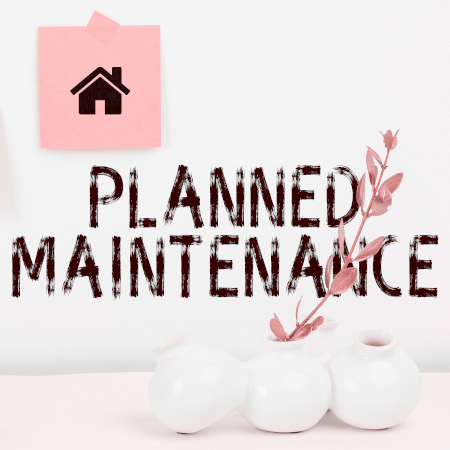
Maintaining Consistent Feng Shui Practices
To maintain consistency in your Feng Shui practices, consider the following tips:
- Daily Awareness: Cultivate mindfulness and awareness of your environment on a daily basis. Notice how you feel in different areas of your home and make adjustments as needed to enhance comfort and energy flow.
- Regular Maintenance: Incorporate Feng Shui practices into your regular cleaning and maintenance routines. Clear clutter, dust, and organize your space regularly to prevent energy stagnation and promote freshness and vitality.
- Periodic Assessments: Schedule periodic assessments of your home’s Feng Shui to identify any areas that may need attention or adjustment. This could include conducting a thorough review of the Bagua map, checking for clutter accumulation, or reassessing the placement of furniture and décor.
- Intentional Adjustments: Make intentional adjustments to your environment based on changes in your life circumstances, goals, or aspirations. As you evolve and grow, your Feng Shui needs may change, so it’s essential to adapt your practices accordingly.
Long-term Benefits of Consistent Feng Shui:
By consistently nurturing the energy flow in your home, you’ll experience a multitude of long-term benefits:
- Enhanced Well-being: A harmonious and supportive environment can contribute to feelings of peace, focus, and overall well-being.
- Goal Achievement: When your home aligns with your aspirations, it subtly supports you in taking inspired action towards your goals.
- A Space You Love: Over time, consistent Feng Shui practices cultivate a space that feels truly nurturing and reflective of your unique energy.
Feng Shui is a journey, not a destination. Embrace the process of ongoing refinement, and enjoy the positive transformation that consistent practices can bring to your home and your life.
“Consistency is key in Feng Shui. It’s not just about making adjustments once and forgetting about them—it’s about maintaining a harmonious environment that supports your well-being over time.” – Feng Shui Specialist, Michael Chen
Final Thoughts
In conclusion, achieving successful Feng Shui in your home or workspace requires a comprehensive understanding of the principles and a consistent commitment to creating a harmonious environment. By avoiding common pitfalls such as a one-size-fits-all approach, chasing cures without addressing root causes, and inconsistent implementation, you can tailor your Feng Shui practices to your unique needs and goals.
Remember, Feng Shui is not just about rearranging furniture or placing lucky charms; it’s about creating an intentional space that supports your well-being and helps you thrive. By understanding the flow of chi, decluttering your environment, and aligning with the five elements with your space, you can unlock the full potential of Feng Shui.
Lastly, consistency is key. Maintain your Feng Shui practices over time, regularly cleansing your space, making adjustments as needed, and reinforcing your intentions. With dedication and patience, you’ll begin to experience the long-term benefits of consistent Feng Shui, including improved well-being, enhanced success, and positive relationships.
Embrace the principles of Feng Shui as a tool for creating a supportive and nurturing environment that empowers you to live your best life. By understanding and applying these concepts, you can transform your space and unlock new possibilities for growth, fulfillment, and joy.
Want to learn more about Feng Shui? Take a look at these Courses and Books – Aff.link
Stay in Touch
 Join our newsletter by using the forms on this website or click here!
Join our newsletter by using the forms on this website or click here! Follow us on Google News
Follow us on Google News Follow us on Facebook
Follow us on Facebook
Featured Image from Depositphotos

